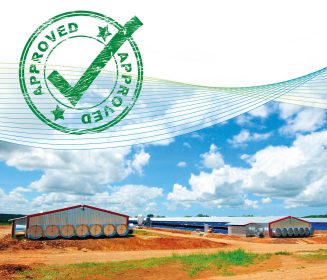13 May 2025
Thailand introduces new chicken breed to boost rural incomes and food security
The Luang Dong Yaw chicken is the result of crossbreeding two existing strains: the local Tamhuang chicken and the Rhode Thai.
Available in other languages:
Content available at:
ไทย (Thai)
In a bid to support rural livelihoods and strengthen food security, Thailand has introduced a new breed of chicken called ‘Luang Dong Yaw’, specially developed for small-scale farmers.
As reported by Banmuang News, the breed, officially launched by the Sakon Nakhon Livestock Research and Breeding Center, is designed to be easy to raise, fast-growing, and economically viable.
The Luang Dong Yaw chicken is the result of crossbreeding two existing strains: the local Tamhuang chicken, known for its adaptability, and the Rhode Thai, a robust American-origin breed. The new hybrid combines the resilience of native breeds with improved growth and productivity.
“This is a new economic breed for Thailand’s poultry sector,” said Yuangyot Jindatajak, Director of the Sakon Nakhon Livestock Research and Breeding Center.
“It’s easy to care for, grows quickly, and offers a good return for farmers.”
Key features of the Luang Dong Yaw chicken include:
- Yellow feathers with a black neck ring
- Moderate size: adult males weigh 3-4 kg, females 1.5-2 kg
- Mature in just 2-3 months
- Market price: approximately USD 1-1.40 per bird
The breed is suitable for both consumption and commercial sale, and its meat can be used in various dishes including soups, curries, grilled meals, or traditional Thai preparations.
So far, over 12,000 birds have been distributed to Thai farmers at a subsidized price of about USD 0.33 per chick, according to Jiraporn Srajam, a senior livestock officer at the center.
The goal is to offer farmers a low-risk, high-reward alternative that supports local economies and reduces dependence on imported breeds.
The research center is also developing other native breeds, such as the Kabhin Luang Hang Khao, with potential use in traditional cockfighting and as a specialty meat bird.
For international agricultural development experts, NGOs, and stakeholders in sustainable livestock systems, this project highlights Thailand’s growing focus on innovation in rural agriculture—with solutions grounded in local breeds and community-driven farming.








































